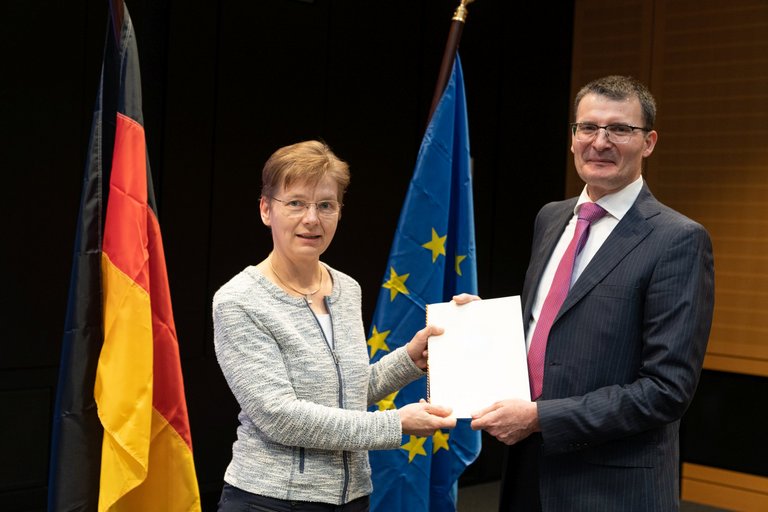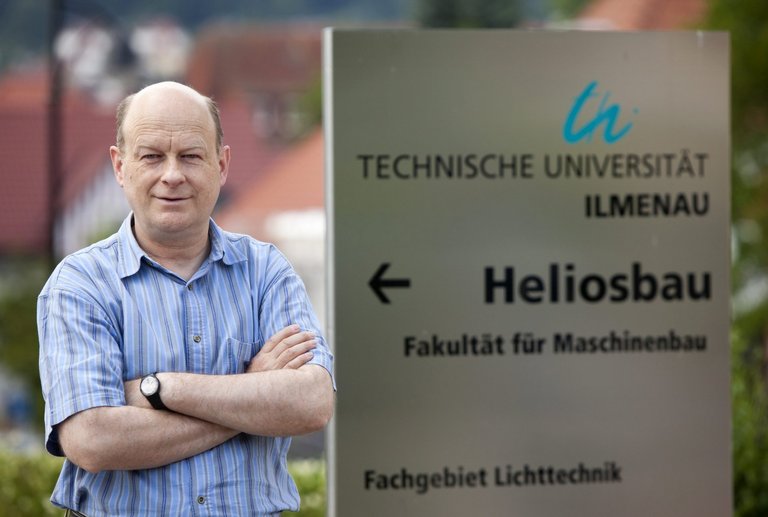In the Chronolite project, researchers at the Lighting Engineering Group want to adjust the lighting in cars, trains and airplanes to the chronobiological clock of passengers for the first time. To this end, they are developing intelligent sensors that communicate data to a cloud.

Our everyday life is determined by our inner chronobiological clock. It regulates the day-night rhythm and influences our well-being. If this inner rhythm gets out of sync, it has a negative impact on our health. For example, if someone travels to a distant destination, the body's biological rhythm no longer matches the local time. Sleep disturbances, fatigue or concentration difficulties can be consequences of this shift.
In the joint research project "Chronolite," researchers at TU Ilmenau want to bring our chronobiological clock into balance with the help of an app. As part of the "Innovation Offensive Artificial Intelligence in Mobility," which is funded by the German Federal Ministry of Digital Affairs and Transport (BMDV) with 8.3 million euros, a team led by Prof. Christoph Schierz, head of the Lighting Engineering Group, is developing intelligent sensors for measuring lighting in trains, airplanes, and cars. Attached to luminaires, windows, roofs, but also personal objects such as glasses or brooches, the sensors, which are connected to the Internet, measure light intensity and color and transmit this data to a cloud. Based on Internet of Things (IoT) communication, this information is processed in an app. This then derives recommendations for its users, such as which specific illuminated carriage they should board on the train, or it directly dims the light of IoT-enabled luminaires and adjusts its color from reddish to bluish. The app also monitors whether its users are getting enough light throughout the day, as Prof. Schierz explains:
With our light sensors, the app takes into account people's various everyday situations and promotes healthy sleep by regulating light intensity and color. After all, it has been scientifically proven that sufficient light during the day improves our sleep.
Internet enabled light sensors
In the Chronolite project, Prof. Christoph Schierz wants to promote the health not only of travelers such as commuters, but also of employees. Lighting concepts are already occasionally used in public transport and open-plan offices by adapting the lighting to the time of day. Lighting concepts tailored to individual persons are not yet established, as Prof. Schierz explains:
In the Chronolite joint project, individual lighting concepts are being developed for the first time to meet the needs of individual app users. We make this possible with our innovative, Internet-enabled light sensors
Together with the collaborative partners from science, industry and mobility providers, including Lufthansa Technik and the German Centre for Rail Traffic Research, the scientists from TU Ilmenau will run through application scenarios for the app in the final phase of the project. Prof. Christoph Schierz is confident that the app, like a pedometer, will become a natural everyday companion for people in the future.
Contact
Prof. Christoph Schierz
Head of the Lighting Engineering Group


